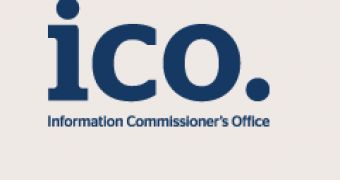The UK Information Commissioner’s Office has released its 2011/12 annual report and the figures show that in the past year the organization has issued a lot of monetary penalties to companies that failed to protect their customers’ and employees’ personal information.
A perfect example of a firm that failed to protect sensitive details is Welcome Financial Services Limited (WFSL). The ICO fined WFSL with 150,000 GBP ($232,000 or 183,000 EUR) after the company lost the details of more than half a million customers.
A total of 21 penalty notices have been issued, the fines mounting up to 2 million GBP ($3.1 million or 2.5 million EUR).
“This year we have seen some truly shocking examples, with sensitive personal information, including health records and court documents, being lost or misplaced, causing considerable distress to those concerned,” Information Commissioner Christopher Graham said.
“This is not acceptable and today’s penalty shows just how much information can be lost if organisations don’t keep people’s details secure. We hope these penalties send a clear message to both the public and private sectors that they cannot afford to fail when it comes to handling people’s data correctly.”
The report also highlights the fact that unsolicited marketing calls and text messages are becoming a problem. In the last financial year, the ICO received over 7,000 complaints.
“We have now set up a dedicated team to enforce the Privacy and Electronic Communication Regulations and we are currently working to identify the operators responsible. The ICO has executed search warrants at a number of sites across the UK linked to companies we believe are breaking the law,” Graham added.
“We have also set up an online reporting mechanism on our website that allows people to report any marketing texts or calls from unidentified senders. We have received over 12,000 reports to date and we are confident that this work will help us identify those responsible.”

 14 DAY TRIAL //
14 DAY TRIAL //